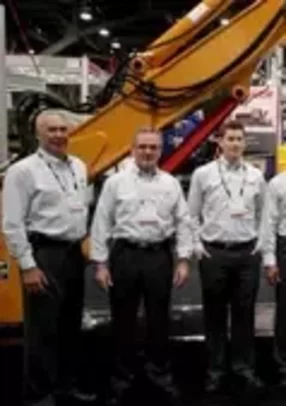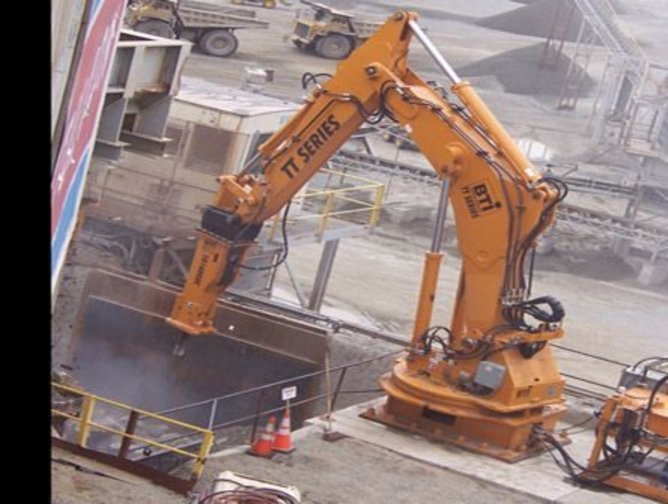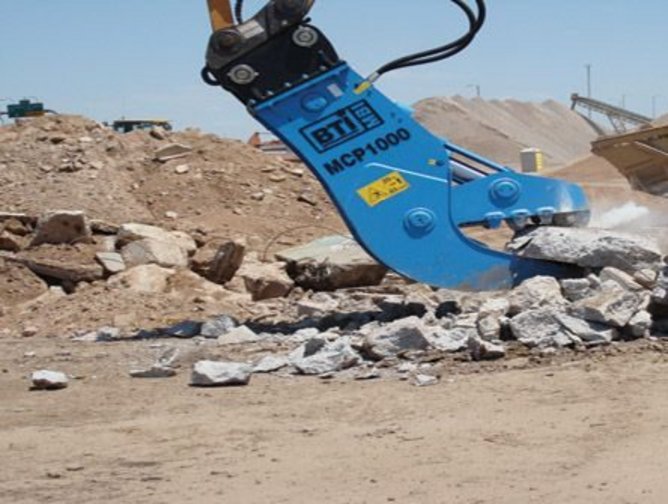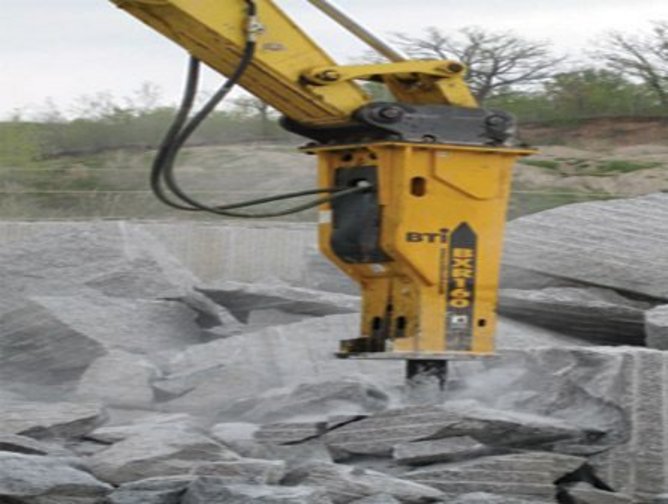
BTI: Breaking In to the World Market
In 1958, a business called JMG Manufacturing Ltd burst onto the scene as an equipment manufacturer for the mining, construction, demolition, and aggregate industries. Over the years the company has seen a lot of change, growing and evolving on its own and under parent corporations. Today the company is known as Breaker Technology, or BTI, and is a part of the Astec Industries family. But one thing that hasn’t changed since it began is its dedication to providing the industries it serves with the highest quality products possible.
Striving for Innovation: The BTI Difference
If you were to ask: ‘what is your number one point of differentiation,’ it is that we strive to be innovative,” says Jim Brown, Vice President of Sales and Marketing at BTI. “How can we take our existing products and make them better?”
According to Brown, determining how to improve has a lot to do with being aware of your surroundings and keeping up with the zeitgeist. “It’s just being aware of what’s out there in the industry,” he says. “A really good example might be the diesel engine going from Tier 2 to Tier 3 and now to a more environmentally friendly Tier 4. It’s important that we incorporate those into our own products going forward, because that’s what’s going to be the norm and that’s what’s going to fit regulations in various regions. It’s the same thing with electric motors – the old horsepower calculation used to be 85 percent efficient, but now they’ve gone to high efficiency and most engines are 93 to 94 or higher, so we need to incorporate that technology into our designs as part of our own innovative creativity of making products stronger.”
A Strong Relationship From Suppliers to Customers
“Being customer-centric is a huge part of the business for me,” says Brown. “How can we, every day, make it easier to do business with us? That’s what keeps them coming back.”
Brown explains that a major part of exceptional customer service is as simple as listening to what customers have to say. “We do audits with our customer base every year, and the important thing is that we take that feedback and don’t just go through the motions,” he says. “What can we do to respond to the issues or challenges we have with our customers? They’re giving us the honest truth, and we have the opportunity to act on that every year.”
But that attention isn’t limited to one audit a year. It’s an ongoing process of checking in and adjusting at every opportunity. “Any time we pick up the phone, are we giving our customers the answers that they’re looking for? Are we only telling them what they want to hear, or are we being truthful? Are we being ethical in how we respond? It’s about being customer-centric in a way that’s ethical with a lot of integrity. They come back if you treat them that way, and we don’t give them a reason to go anywhere else.”
Good service and a strong relationship don’t begin and end with customers, either – the supply chain goes both ways, and BTI is equally committed to its vendors who work hard to make the supplies that make manufacturing BTI products possible.
“There’s been a push to be a lot more lean manufacturing-minded, and that really comes down to figuring out what we do best and doing that, and letting other people produce better components than we can, do that – then we end up with a higher quality product,” says Brown. “We work with a lot of the brand names that are out there, as well as local suppliers. They are our lifeblood, and I believe in treating suppliers like our customers, fairly and ethically and with a lot of integrity. Make sure you’re paying them on time, so that their businesses will remain strong. It’s a cleaner partnership.”
Spreading Out and Looking Forward
For BTI, the future is an exciting place. In addition to growing within the mining and aggregate sectors they already serve, the business is also looking into the possibility of fine-tuning their product lines to serve other niche sectors as well.
“A lot of it comes down to being aware of the needs of the various industries that we deal in and being receptive to what the trends are in the marketplace – what is it that our customers are looking for, and what can we do with our existing products to possibly work in other niches?” says Brown, who notes that BTI has most recently begun moving into subsectors like waste handling and waste removal by making subtle changes to existing BTI products to better fit the sector’s specialized needs.
“It’s a challenge, but it makes the job fun to see that kind of growth in different areas as equally important,” he explains. “We do strive to be innovative in all of our products, and we’re a market share leader in some of our products – which is very good! But you can’t hang your hat on that. You always want to say: what can we do better?”



